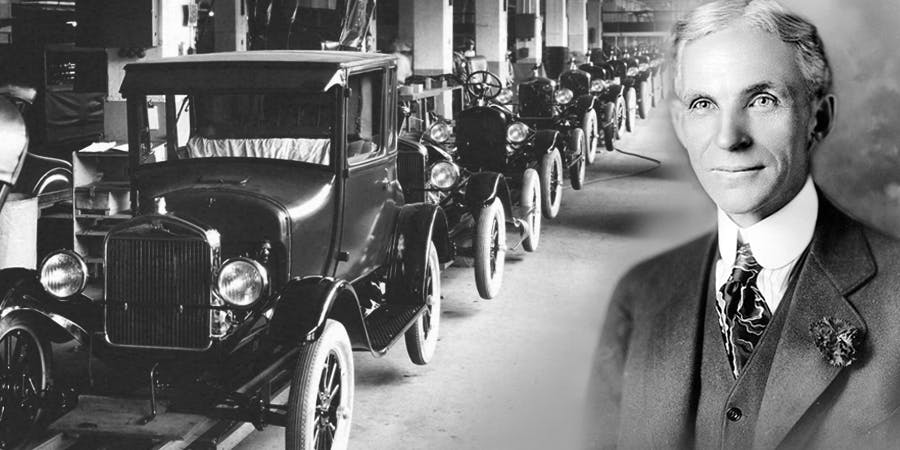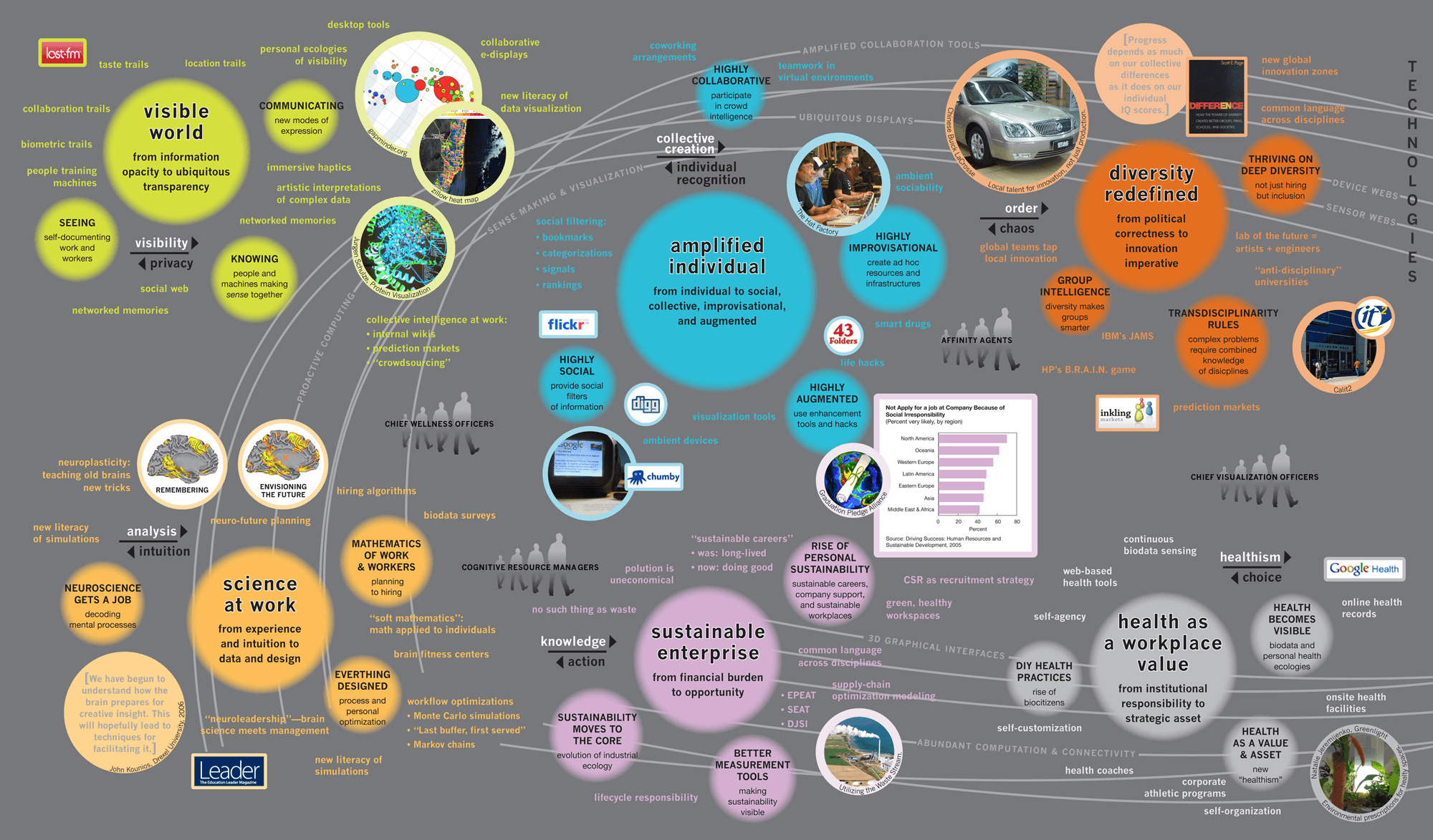- Authors
Your life was designed 150 years ago
Western middle-class living operates on a working pattern invented in the 19th century, grudgingly accepted by progressive capitalists like Henry Ford in the beginning of 20th century and finally written into law early to mid-20th century in most countries.
While certainly a lot of people realise this might not be ideal, just why are we — as global society — so timid about changing this pattern?
First world problems
Much of my argument doesn't apply if you're struggling with low pay, shift-based work or live in a developing country. But many of you reading this post will be fortunate enough to be getting paid to think about and solve problems in creative ways. Yet we know that our brains are incapable of working at their peak, for hours in a row, while our bodies are tied to a desk and our colleagues are buzzing around us.
Chances are that you also earn more than what you really need, to spend the surplus on stuff you want but don't need or have the time to enjoy anyway.
Funnily, some of the nicest things which you do actually need and can really make you happy (as science shows) don't cost a lot of money: taking a walk in nature, relaxing with people you like, cooking some fresh food from scratch, giving time to enjoy the meal together with your family and friends immersed in conversations, or keeping a gratitude journal.
So why do we still choose to join the rush hour congestion every day, and with that, collectively invest in expensive and destructive infrastructure developments just to serve these one-hour time windows? Or, why do we create a binary choice between unemployment and low paid jobs or burning out with no time to rest in sight until we retire, being too old and ill to enjoy it?
Is it about co-location then?
Yes, being next to teammates and interacting in person is something which can't (fully, yet) be replaced by telecommunication, but do or should we have meetings all day with the same people?
Couldn't we organise our discussions a bit smarter into clusters — both within a day and a week — and spend the rest of the time away from the hustle of the workspace, with space to think when we need it the most?
Wouldn't we still have enough chance for serendipitous conversation between colleagues from other parts of the company if only we made sure to spend our lunch time and coffee or tea breaks in the communal area rather than in front of our computers?
Planet, people and economy
What really changed my way of thinking about time is a brilliant and provocative study by the New Economics Foundation, called 21 hours (as in work week). In this paper they argue that by shortening our time spent at work we could decrease overconsumption, stress, and traffic congestion while increasing the number people employed in quality jobs, community and political involvement, and general mental and physical wellbeing.
Once you stop looking at life as a treadmill of 5 long working days and a short weekend — barely enough to gasp for breath —and give yourself permission to explore what else is possible, magic starts to happen in your mind.
If you want a second opinion or to dig deeper, also take a look at the Institute for the Future's Future of Work study.
So what do I do?
It's all very well, I hear you say, but we can't all just move to France with their leisurely work hours, can we? Well, as an example there's a law in the UK that allows you to ask for any form of flexible work arrangement and unless your employer has a very good reason why they can't accommodate for your request — which is unlikely for an office job — you should be allowed to have your way.
So this is exactly what I did in 2013, just after my son was born.
My choice in the end was every Wednesday off. While first I thought about getting a long weekend, slicing the week into half and not having to work more than two days in a row — ever! — works incredibly well.
To make this happen I had to sacrifice 20% of my salary which might sound a bit off-putting at first, but if you think of it this way: you're giving up the highest taxed bit first, or you could also just decrease hours with the same percentage instead of a pay rise next time, suddenly it hurts much less.
Power to the parents
Apart from the decreased normal working pattern, I'm lucky enough to work for ustwo with a progressive paternity policy, enabling fathers to take over maternity time from mother and topping up the statutory pay to full salary.
I can't even begin to describe how wonderful it was for me to be able to spend 2 months during last summer with my little boy, but having some discussions with a few colleagues I realised that this paternal time off has profound implications beyond a healthier, more balanced child and less stressed young mother — if these weren't enough already!
If men also take months off after a child has been born — and in general share looking after the little ones — the ridiculous and often subconscious stigma of mothers as "less dedicated" workers will all but disappear.
Needless to say I was more than happy to bask in the glory of a gender equality champion after this realisation, but this is just a small step to close the gap for a more inclusive workplace. For me personally that is, I can't feel grateful enough for this forward looking and generous policy!
Time to design your life
There's no ultimate recommendation as everyone's different, but you should give yourself time and space to think about what would be the best working pattern for you and what matters the most to you in life by filling in The Living Legacy workbook PDF (see below). As part of this you should realise that it's not a lack of dedication to your career at all to find the way to sustainably give your best instead of burning yourself out!
Credits
Hero image from https://blog.qad.com/2017/01/henry-ford/
This post was originally published on the ustwo blog: https://www.ustwo.com/blog/why-you-not-henry-ford--should-design-your-working-life/

